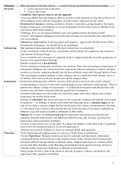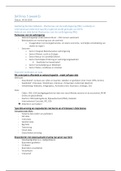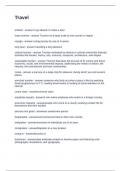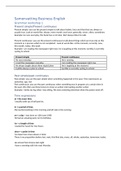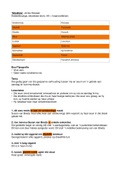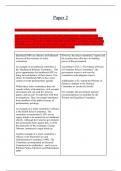- What social forces and ideas drive human behavior?
- Why are there human made inequalities?
- How can we solve human made disasters?”
Sub Areas of Sociology:
- Education
- Inequality
- Music
- Knowledge
- Gender, Race, Class, Migration, Citizenship
Important things in Syllabus:
- How to email professor
- Grading (point distribution)
- Final info.
- Themes & Timeline
- Films we’ll watch
Chapter 1 Self-Read Textbook Key Takeaways:
Introduction
Many people (specifically in Tokyo's Shinjuku station) ride the subway everyday. Many locals understand things
like common courtesy. For example, things like jamming the door with your foot when you see someone running up,
knowing how fast to walk, where to stand, or not telling anyone that may come across as rude. These behaviors are
not taught or written down rules anywhere, but its an echo of society.
1.1 What is Sociology?
Sociology is the scientific and systematic study of groups and group interactions, societies and social
interactions, from small and personal groups to very large groups. A group of people who live in a defined geographic
area, who interact with one another, and who share a common culture is what sociologists call a society.
Micro level sociologists study small groups while macro sociologists study trends among large groups and
societies. The term culture refers to the group’s shared practices, values, and beliefs.
Sociologists often study culture using the sociological imagination, which pioneer sociologist C. Wright Mills
described it as an awareness of the relationship between a person’s behavior and experience and the wider culture
that shaped the person’s choices and perceptions. Culture is a product of the people in a society.
Cultural patterns and social forces put pressure on people to select one choice over another. The culture in US
families has changed over the past several decades. It used to be that their was a married couple that lived together
with their unmarried children. In recent years, that hasn't been the case. Now, more households consist of single
parents, same-sex couples, expanded homes etc.
Figuration - Simultaneously analyzing the behavior of individuals and the society that shapes that behavior.
A lesbian couple moved from a big city to a rural midwestern town. They began to experience discrimination for
the first time. Although they decided they were going to set up the first ever gay-straight alliance in their town. This is
an example of how a bad thing can turn into a learning experience and a good outcome.
1.2 The History of Sociology:
During the bubonic plague in Europe for over 200 years, the Catholic Church faced ridicule. In the early 19th
century during the Industrial Revolution, many people were for the first time being exposed to cultures other than their
own. Ideas spread rapidly as people created new ideas.
European Theorists:
,Auguste Comte (1798 – 1857) - Reintroduced the term “sociology” in 1838. He studied alongside philosopher
“Claude Henri de Rouvroy Comte de Saint-Simon” both thinking that they can use the same scientific methods used
in natural sciences. Comte believed that once laws were made, sociologists could then address problems like poor
education and poverty. He named the scientific study of social patterns positivism. Harriet Martineau (1802 – 1876) -
Alongside sociology, she studied economics, social class, religion, suicide, government, and women’s rights. She
found that capitalism and the moral principles of people in the US contradicted. She further noted that “all men are
created equal” was contradictory with women's rights at the time.
Karl Marx (1818-1883) - He and Friedrich Engels co authored the Communist Manifesto. It was one of the most
politically influential manuscripts in history. Marx disagreed with Comte’s theory. He believed that people change as a
result of struggles over different social classes. Marx predicted that capitalism would eventually become so extreme
that the workers would revolt, and start the collapse of capitalism. He believed in communism to work more than
capitalism.
Herbert Spencer (1820–1903) - He disagreed with both Comte and Marx’s theories. Instead, he believed in market
forces controlling capitalism.
Georg Simmel (1858–1918) - Not a fan of positivism. Focused mainly on micro sociology.
Émile Durkheim (1858–1917) - He believed he could determine if a society was “healthy” or “pathological” because
healthy ones were stable while pathological ones were corrupt. Max Weber (1864–1920) - He wrote a book
trying to understand and describe the sociology of cause and effect.
American Theorists:
W.E.B. Du Bois (1868-1963) - Used methodology into sociology. Made efforts to increase rights for black people. He
was the leader of the Niagara Movement. He also helped the National Association for the Advancement of Colored
People (NAACP) and served as its director of publications.
Thorstein Veblen (1857 – 1929) - Jane Addams (1860-
1935) - Worked with immigrants for healthcare services and food. Charles Horton Cooley (1864-1929) -
Discovered that individuals compare themselves to other people to see how they fit into a social construct. He called
this idea “The Looking Glass Self. George Herbert Mead (1863–1931) - Developed the theory that a reflection of
oneself is dependent on who the person is comparing themselves too. Robert E. Park
(1864-1944) - Founder of social ecology. Proved that social chaos is not caused by the people but the environment.
1.3 Theoretical Perspectives in Sociology:
Paradigms - Few theories provide broad perspectives that help explain many different aspects of social life.
Functionalism - Sees society as a structure with interrelated parts designed to meet the biological and social needs of
the individuals in that society.
Social Institutions - Patterns of beliefs and behaviors.
Dynamic Equilibrium - All parts working together to maintain stability.
Manifest Functions - Consequences of a social process that are sought or anticipated.
Latent Functions - Unsought consequences of a social process.
Dysfunctions - Social processes that have undesirable consequences for the operation of society
- A criticism of the structural-functional theory is that it can't explain social change even though the functions
are processes.
- The emergence of technology has made the world a much smaller place because everyone is connected
through cell phones and the internet.
- Researchers explore how international markets can sway social inequalities.
Conflict theory looks at society as a competition for limited resources. This is a macro-level stance approached by
Karl Marx.
Herbert Bloomer coined the term “symbolic interactionism” which means that the hobbies you have or things you do
are formed by something from your childhood. For example if you like to read, someone may assume that you read
bedtime stories when you were a kid, or that getting your library card was a special event, or that you read because
you know it's good for your well being and relationships you build.
Erving Goffman came up with the theory of dramaturgical analysis, using theater as an analogy for humans.
Constructivism is an extension of symbolic interaction theory which proposes that reality is what humans cognitively
construct it to be.
The main three approaches to Sociology are Conflict theory, Structural-functionalism, and symbolic interactionism.
1.4 Why Study Sociology?:
, Researchers conducted a study to test the theory if separate but equal could really work. They got a group of 4 young
black girls and conducted the “doll test”. Four dolls were put in front of the girls, 2 with light skin and blonde hair, then
2 with dark skin and black hair. All four girls chose the light skin light haired girls. When they were given the dolls that
looked more similar to them some began to cry, pout, and some even ran out of the room.
- Sociology teaches people to not accept easy explanations
- It increases their urge to learn things from other people's perspectives.
Employers continue to look for people with “transferable skills” This means that they have skills that can be
transferred to multiple tasks and assignments.
PAIDEIA (Greeks that produced this concept, means deep education)
The Socratic Method
- Socrates had a method
- What he says is that “its not the know it alls, but hte people that ask questions, that are
learning”
Sociology - The Scientific and systematic study of groups and group interactions, societies and
social interactions, from small and personal groups to very large groups (Not opinions)
Society - A group of people who live in a defined geographical area who interact with one
another and who share a common culture.
What common culture do we share in the US?
- Small talk
- Freedom focus
- Individualism
- Loud in public
- Customer service, friendlier
- Tipping
Common culture do we share in Texas?
- Whataburger
- Heb
- Mexican culture
Micro Sociology Dynamic:
- Employees
- Students
- Sororities
- WOC
- Roommates
Macro Sociology Dynamic:
- Institutions
- Large Organizations
- Governments
Institutions and the self:
Institutions - Governments(the state), Religions, Education(not uni.), Families, Economy

